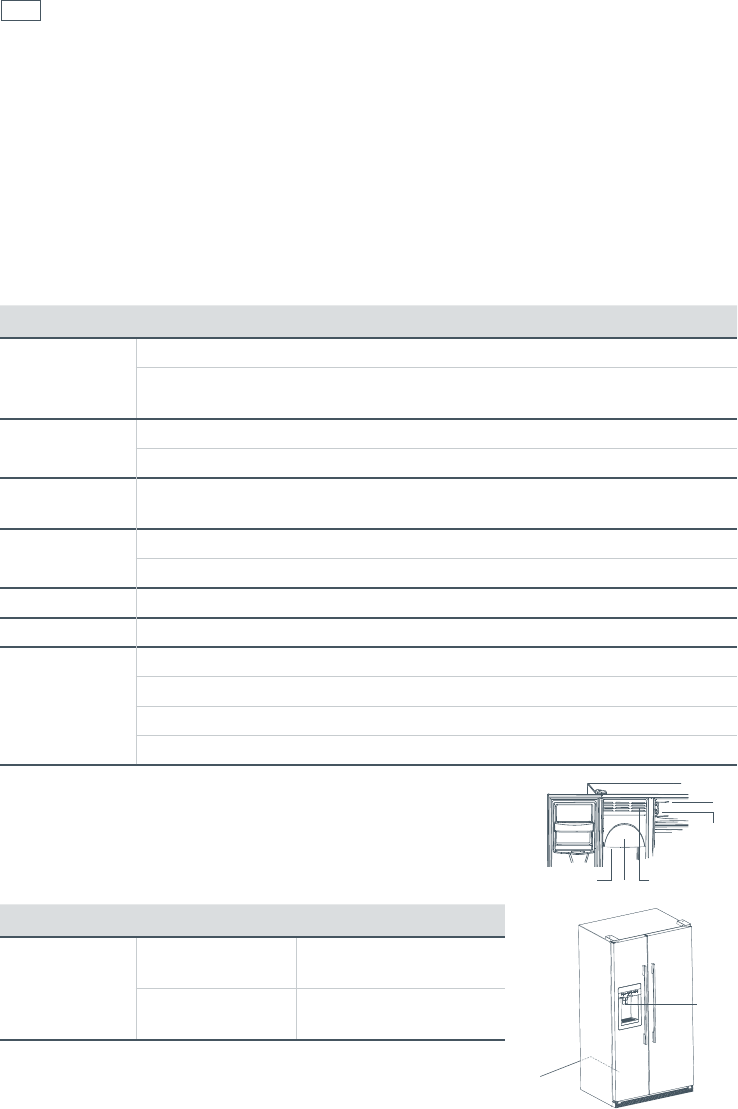
38
Improvements in refrigeration design may mean your new refrigerator produces sounds that
are different to other models. These improvements have created a refrigerator that is better at
preserving food, more energy efficient and quieter overall. Because new units are quieter, sounds
may be detected that were masked by higher sound levels in older units. Many of these sounds
are normal. Please note that the surfaces adjacent to a refrigerator, such as hard walls, floors
and cabinetry may make these sounds seem even louder. The following are some of the normal
operational sounds that may be noticed in your new refrigerator.
Normal operational sounds
Sound Possible causes
Clicking Freezer control (
a
) clicks when starting or stopping compressor.
Defrost timer or electric damper control (select models) (
b
) sounds like an
electric clock and snaps in and out of defrost cycle.
Air rushing or
whirring
Condenser fan (
d
) and freezer fan (
c
) makes this noise while operating.
Freezer fan (
c
) slows to a stop as the freezer door is opened.
Gurgling or
boiling sound
Evaporator (
e
) and heat exchanger (
f
) refrigerant make this noise when
flowing.
Thumping Ice cubes from ice maker dropping into ice bucket (
g
).
Dispenser ice chute (
h
) closing (RX693 / RX594 models).
Buzzing Ice maker water valve (
j
) hookup buzzes when ice maker fills with water.
Vibrating noise Compressor (
i
) makes a pulsating sound while running.
Humming Ice maker (
k
) is in the ‘on’ position without water connection.
Compressor (
i
) can make a high-pitched hum while operating.
Solenoid valve (
m
) operating ice chute door (RX693 / RX594 models).
Ice auger (
l
) hums as auger agitates ice during dispensing (RX693 / RX594 models).
Other sounds
Sound Possible causes Solution
Vibrating noise Refrigerator is not
level.
See ‘Levelling’, page 8.
Contents of
refrigerator rattling.
Ensure no jars or bottles
are touching.
Operating sounds
c, l
a
b
k
g
d, e, f, i, j
h, m


















